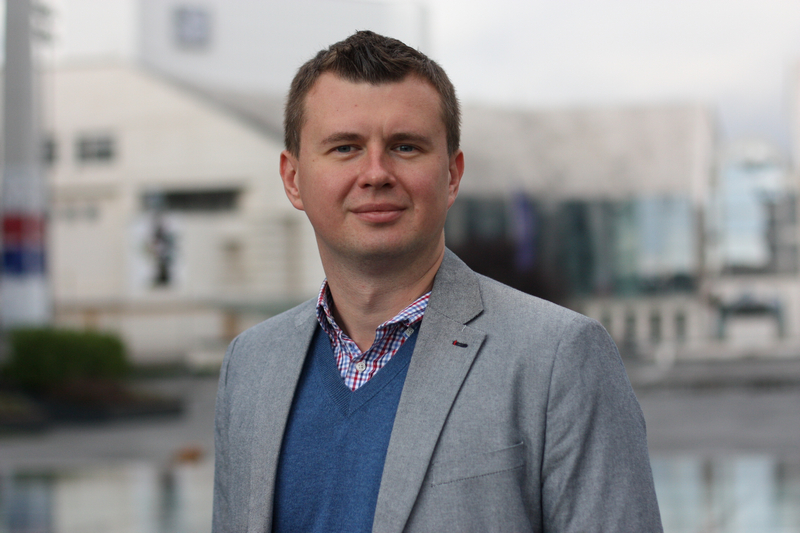
Dr. Aliaksei Kazharski is a Researcher in Charles University. His research interests have included Central and Eastern Europe, Russia, regionalism, identity in international relations, critical approaches to security and terrorism studies. He is the author of two monographs: “Eurasian Integration and the Russian World. Regionalism as an Identitary Enterprise” (CEUPress, 2019) and “Central Europe Thirty Years after the Fall of Communism. A Return to the Margin?” (Rowman&Littlefield, 2022), winner of the International Studies Association, Global International Relations Section 2022-2023 Book Award.
His academic and policy texts can be found here.
Can you briefly introduce yourself and your academic background, highlighting your research interests in decolonization and education?
I am a researcher at Charles University (Prague, Czech Republic), focusing on politics and international relations in Central and Eastern Europe (CEE), mostly as seen from a social constructivist perspective. In my research, among other things, I have dealt with imperial identities and imperialism and its legacy. This is closely connected to postcolonial studies and the present agenda of decolonization.
What inspired you to participate in the conference on decolonization in education and research in Belarus and Ukraine?
I was invited by Prof. Tatiana Shchyttsova, who is my former lecturer, so it was an honor for me. Of course, I also see the topic of the conference as both interesting and very timely.
What factors have contributed to the need for decolonization in the education and research sectors of Belarus and Ukraine?
Naturally, the most dramatic factor is the horror of a full-scale Russo-Ukrainian war that is unfolding in front of our eyes. But the drama did not simply start in 2022, the full-scale invasion merely confirmed that 1991 left us with “unfinished business.” The three decades that elapsed since the collapse of the USSR saw the gradual formation of modern political identities in both Belarus and Ukraine and Russia’s shortlived and failed attempt to overcome its own imperial identity. These processes are still very much ongoing and, therefore, it looks like we will not avoid a conceptual discussion about decolonization.
What are the main challenges and obstacles faced when attempting to decolonize education and research in Belarus and Ukraine?
I would say the first challenge is the fact that it is very difficult to make prognoses at this point, i.e. how the war will end, what will happen to Belarus, etc. There are so many unknowns. Nevertheless, a conversation is necessary because you do not want to “build the ship at sea.” You need to have some kind of a preliminary understanding of what you need to do by the time you have an opportunity to do something. Otherwise, I imagine there would be many challenges, some of which are practical, e.g., resources, human capital, and political will. Others are conceptual, e.g. how to reconcile the concepts of “colonial” and “decolonization” with the Central and Eastern European context, how to overcome the legacy of imperialism but preserve the freedom of speech and debate. These are not easy questions.
What are the best practices, strategies, and practical steps that institutions can employ to push for decolonization efforts in their curricula and research agendas?
Honesty, academic integrity and professionalism, high academic standards, openness, and freedom of debate. This may sound a bit abstract but these are the sine qua non. We are in a new situation here so, of course, we want to borrow some things from the best educational institutions in the West and beyond the West but we will need to also learn to adapt them to our circumstances. Simply copying will not do.
How important is international collaboration in the decolonization of education and research in Belarus and Ukraine? Are there any successful collaborative projects?
There are two aspects here. The first aspect has to do with what I already mentioned above, that is, with the global dimension and the attempts to learn something from other regional experiences, bearing in mind both the similarities and the differences. The second aspect is the intra-regional cooperation, above all between Belarusian and Ukrainian researchers and practitioners. Experts in both countries might have more mutual knowledge than the broader public but even that, I am afraid, can be rather patchy. This conference is a good step in the direction of improving the situation.
How can students and local communities be actively involved in the decolonization process?
I have always preferred learning and reflection to activism, so I will give a “boring” academic answer: above all, by maintaining and actively demanding a high intellectual standard from the educational system. This includes a departure from the “monological” teaching methods built on passive reception and movement in the direction of more informed debate and the development of certain skills that allow people to formulate and actively communicate knowledge, and to participate in knowledge production. This is a serious issue in Central and Eastern Europe where much of the teaching is still built around memorizing the lectures – not necessarily of the highest quality. This is by the way, also a kind of a “colonial” practice.
What do you envision as the future of decolonization in education and research for Belarus and Ukraine?
This is a very broad question, but as a minimum, I would say challenging and overcoming some of the narratives, stereotypes, and practices that are part of the imperial legacy. It seems that full decolonization is an impossible task, but maybe also an unnecessary one. My observations from other regions suggest that the Empire always stays with you in some ways but that does not always lead to tragic consequences.
In conclusion, what message or key takeaway would you like to leave the conference attendees regarding the decolonization of education and research in Belarus and Ukraine?
Let’s get to work!